Finding the right supplier partnership can truly transform your business operations! It's not just about transactions; it's about building a relationship that fosters growth and innovation. In this article, we'll explore the essential elements of a supplier partnership agreement, ensuring both parties are aligned and thriving together. So, if you're looking to enhance your supplier relationships, keep reading to discover valuable insights!
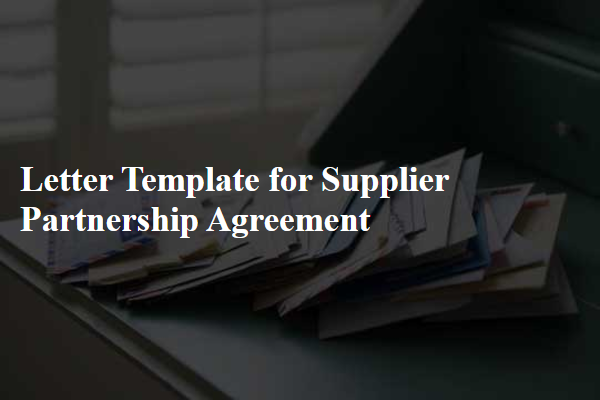
Clear Identification of Parties
In a Supplier Partnership Agreement, clear identification of parties is essential for establishing mutual understanding and responsibility. The primary entities involved include the Supplier, which refers to the company providing goods or services, and the Buyer, which denotes the organization acquiring these goods or services. Proper identification includes the full legal names, addresses including postal codes, and any relevant registration numbers (such as business registration or tax identification numbers) unique to each party. This ensures that all legal documents have the correct entities listed, mitigating any risk of miscommunication or liability issues related to the agreement. In cases of multiple parties, such as subsidiaries or affiliates, these should also be accurately documented to avoid ambiguity in roles and expectations.
Scope of Cooperation and Responsibilities
The scope of cooperation and responsibilities in a supplier partnership agreement outlines the specific roles and expectations of both parties involved in the partnership. The agreement typically includes details such as the types of products or services to be supplied, delivery schedules (for example, bi-weekly shipments), quality standards (such as compliance with ISO 9001:2015), and payment terms (like net 30 days). Responsibilities may also cover aspects of communication protocols, such as regular progress meetings (scheduled monthly) to discuss performance metrics, order forecasts, and potential challenges. Additionally, the agreement may address confidentiality clauses to protect proprietary information, dispute resolution mechanisms, and termination procedures to ensure a smooth disengagement if required. Each party's obligations in the partnership, such as adherence to local regulations (like California's Proposition 65 for suppliers dealing with hazardous substances) and sustainability practices, are also essential elements to include in this agreement.
Terms of Payment and Delivery
A supplier partnership agreement outlines the essential terms of payment and delivery between two entities, such as a manufacturer and a distributor. The agreement specifies payment terms often involving percentages, such as 30% deposit upon order placement and 70% balance prior to delivery. Delivery schedules detail the timeline, usually expressed in days or weeks, for dispatching goods from the supplier's warehouse, located at 123 Supply Lane, Commerce City, to the buyer's facility at 456 Distribution Rd, Industrial Park. Incoterms, such as FOB (Free on Board) or CIF (Cost, Insurance, Freight), are cited to clarify responsibilities for shipping costs and risk in transit. Penalties for late payments, such as interest rates or fees typically ranging from 1% to 5% per month, and conditions for delays in delivery, including force majeure events, are also addressed to ensure mutual understanding and compliance.
Confidentiality and Data Protection
A supplier partnership agreement focused on confidentiality and data protection is essential in ensuring the safeguarding of sensitive information shared between businesses. This agreement outlines obligations regarding the handling of proprietary data, trade secrets, and client information. Confidentiality clauses necessitate that both parties maintain the secrecy of shared information, prohibiting unauthorized disclosure to third parties. Data protection provisions emphasize adherence to regulatory requirements, such as the General Data Protection Regulation (GDPR), ensuring personal data is processed securely and ethically. The agreement typically specifies consequences for breaches, remedies available, and duration of confidentiality obligations, often extending beyond the partnership term, thereby reinforcing trust and collaboration in a competitive marketplace.
Termination Conditions and Dispute Resolution
Termination conditions in supplier partnership agreements can detail specific scenarios that lead to the dissolution of the partnership, encompassing breaches of contract, insolvency (declaring bankruptcy by a party), or failure to meet specific performance metrics (such as delivery deadlines or quality standards). Dispute resolution mechanisms often outline processes for conflict management, including mediation procedures, arbitration requirements (often referencing locations such as New York or London as neutral venues), and timelines for dispute notifications. Effective clauses can ensure clarity, reduce ambiguity, and foster good faith negotiations between suppliers and partners. Having a well-defined exit strategy is crucial for mitigating risks associated with unforeseen circumstances in the supply chain.
Letter Template For Supplier Partnership Agreement Samples
Letter template of Supplier Partnership Agreement for Service Level Improvement
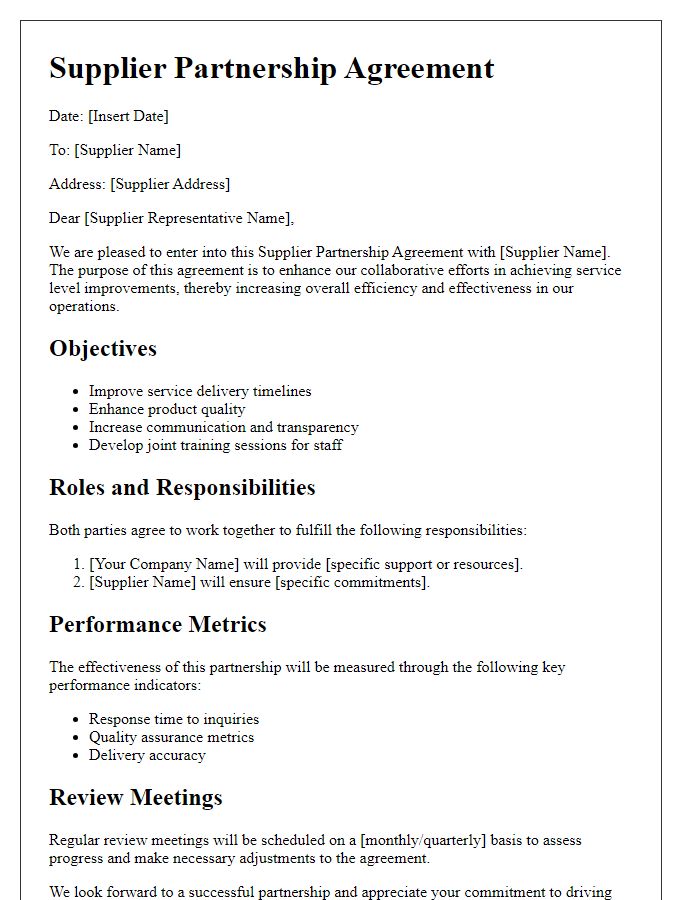
Letter template of Supplier Partnership Agreement for Product Innovation
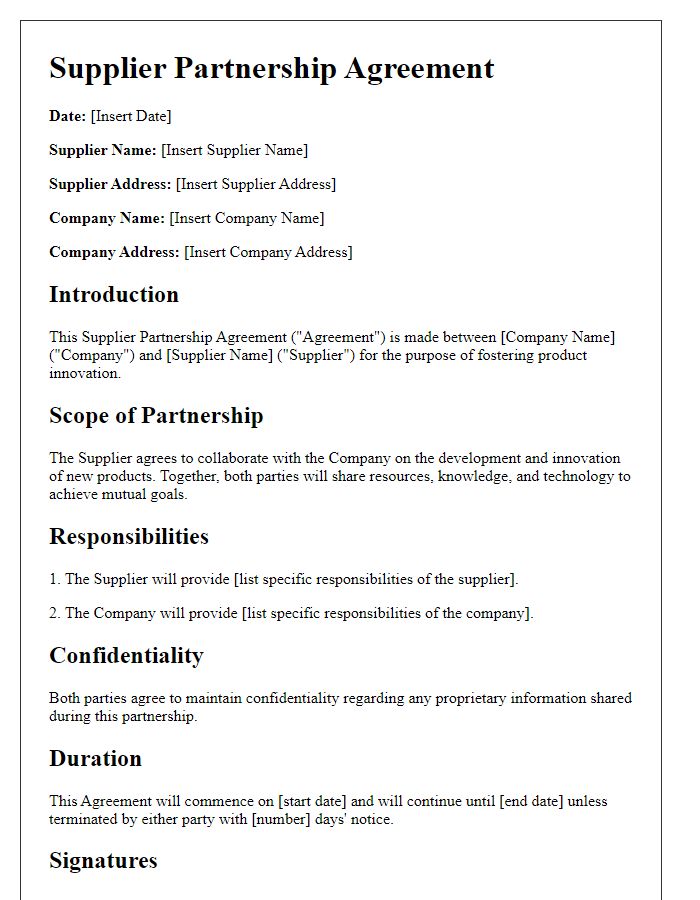
Letter template of Supplier Partnership Agreement for Sustainable Practices
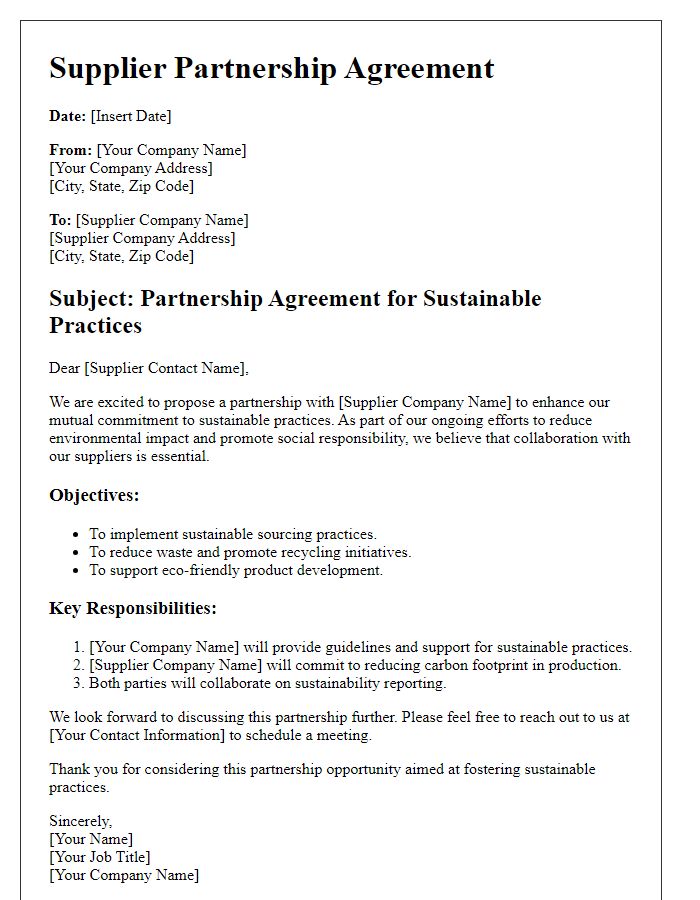
Letter template of Supplier Partnership Agreement for Technology Integration
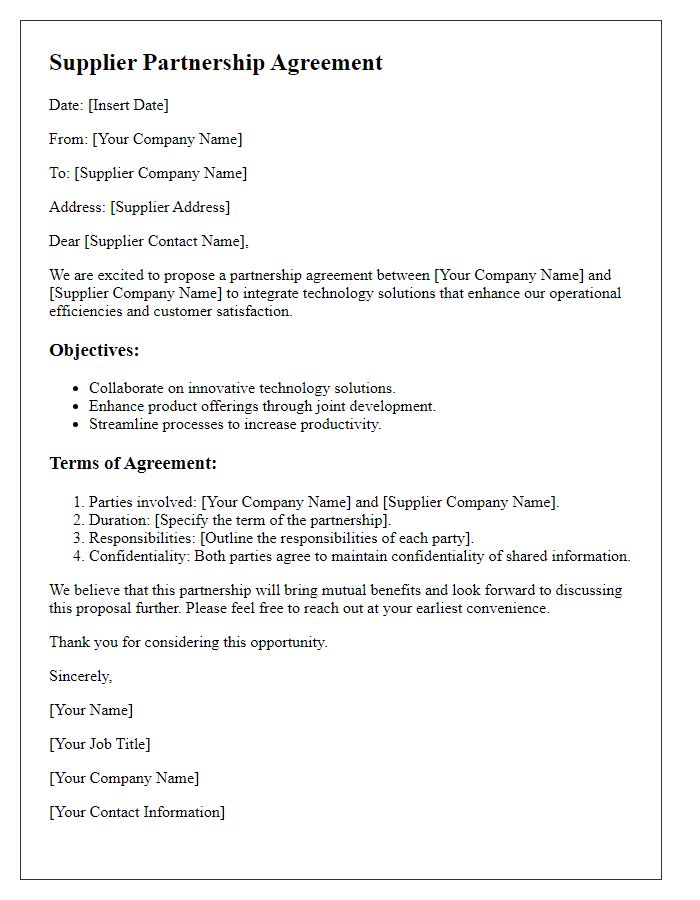
Letter template of Supplier Partnership Agreement for Supply Chain Optimization
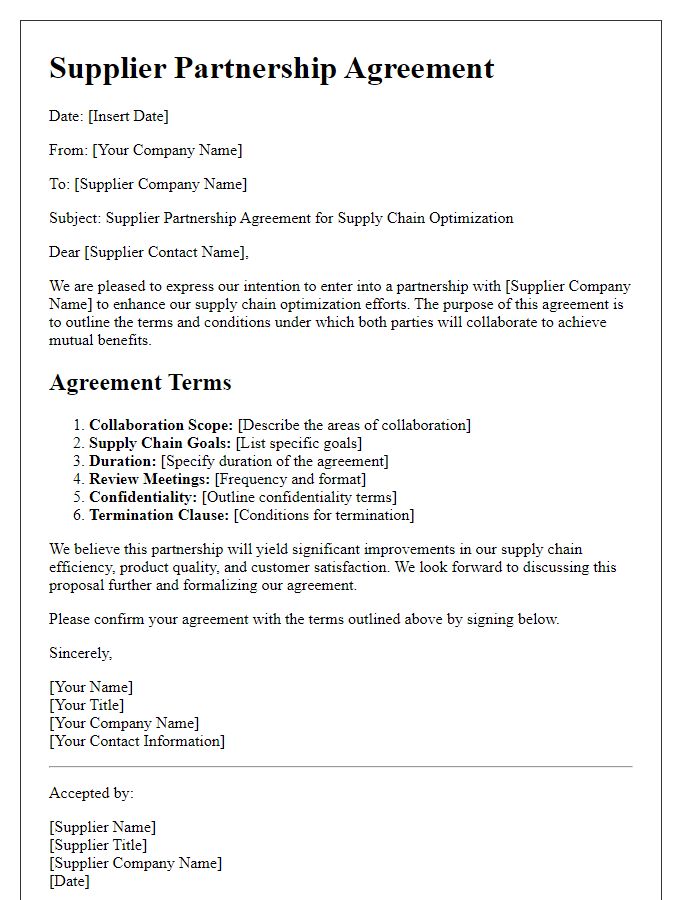
Letter template of Supplier Partnership Agreement for Collaborative Marketing
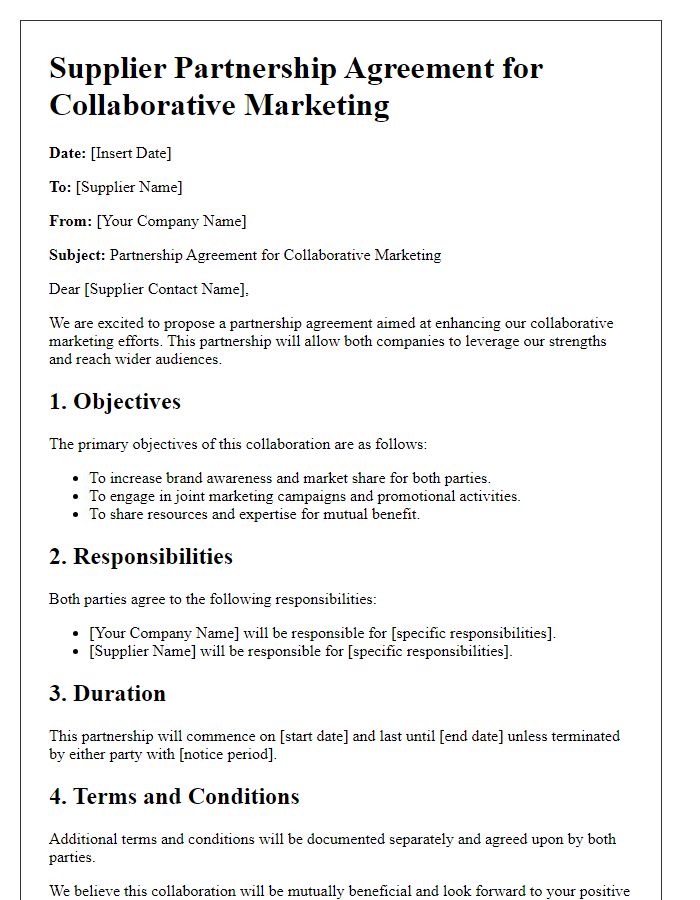

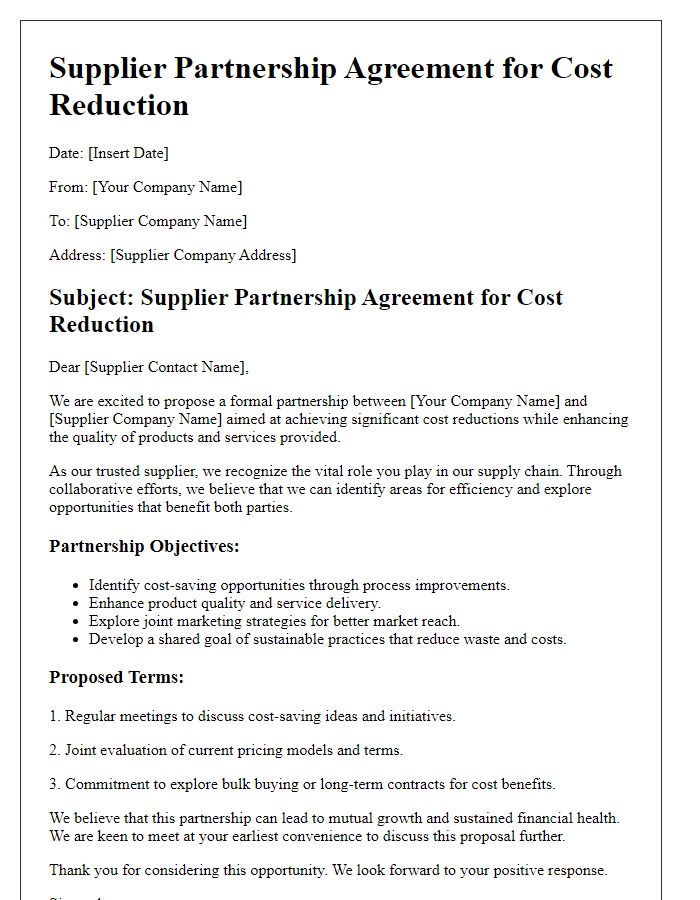
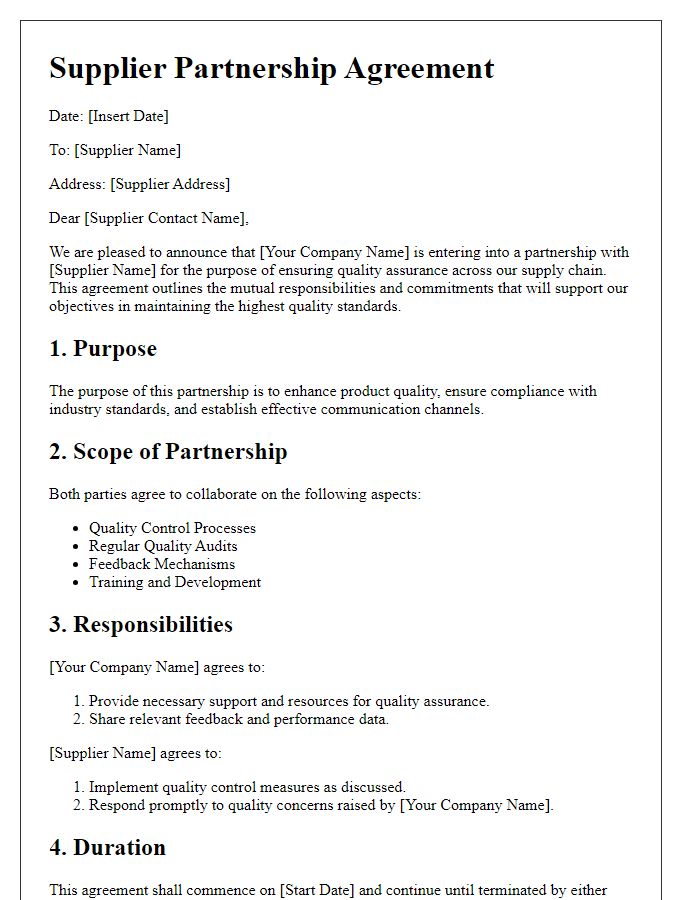
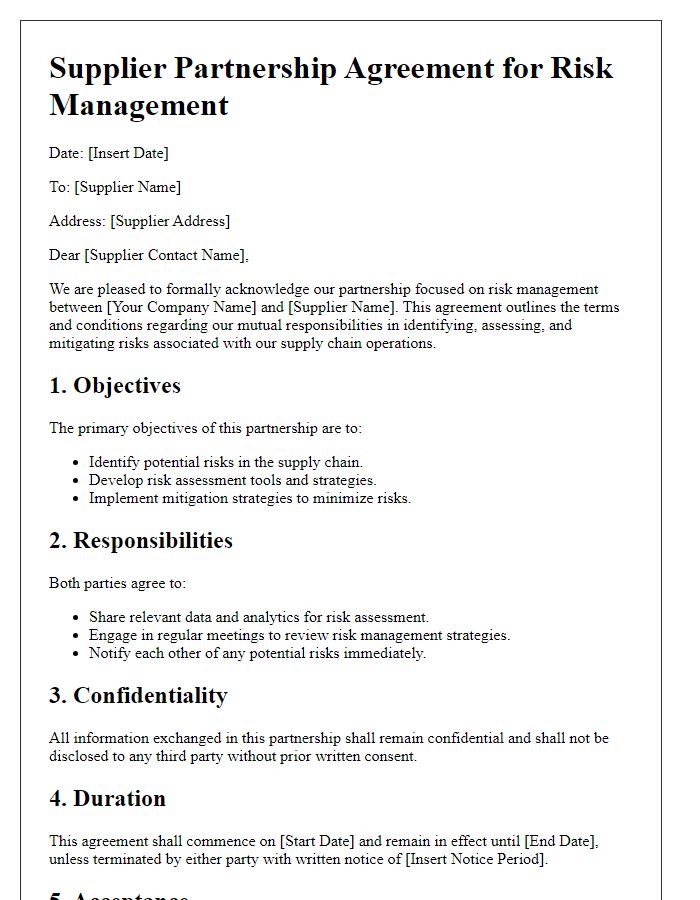
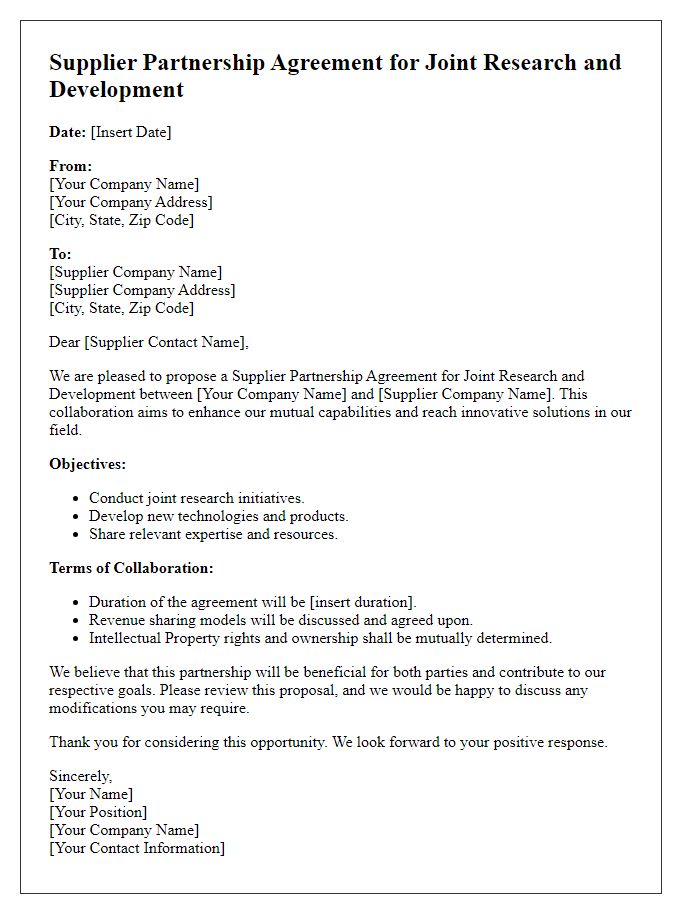


Comments